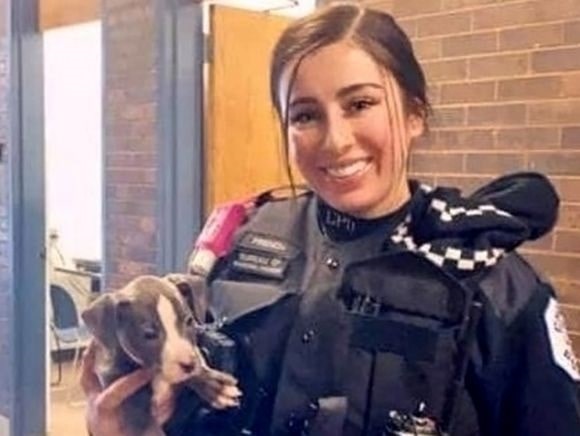The murder of Chicago police officer Ella French, as appalling as it was, could be – and perhaps should be – the catalyst for a new national conversation about policing, criminal justice, and the demonization of law enforcement officers that quite possibly could have been a factor in French’s killing.
While it should never be forgotten that too many Americans have been condemned to prison terms far longer than their crimes warranted, many others have received lenient punishment and, in some cases, hardly any punishment at all for their crimes.

Emonte “Monty” Morgan
Emonte “Monty” Morgan, 21, who faces a charge of first-degree murder for the Aug. 7 fatal shooting of French, had previously been charged with felony theft and misdemeanor battery arising from a 2019 incident. Morgan agreed to plead guilty to one count of robbery and was put on probation for two years, according to a report from CWB Chicago. His brother, Eric Morgan, who was with him in the car when French and other officers pulled them over, had also previously been charged with felony theft.
Arguably, the criminal justice system failed French, but there is an equally dangerous problem that may well have hastened the 29-year-old officer’s tragic and untimely death. Left-wing activists, cheered on by the media and Democrat politicians, have excoriated the police for several years. They could have focused only on specific incidents in which a small minority of police officers abused their powers or acted inappropriately and even illegally. Instead, these anti-police extremists have painted all members of the law enforcement community with the same brush – and perhaps have put targets on their backs.
To say that these agitators have openly incited violence against police is not going too far, especially if one applies to them the same standard for “hate speech” and incitement they use against their political opponents.
Deadly Implications
What about the wider implications for how police officers interact with the public going forward? It is true the men and women who put on the badge and uniform every day go to work knowing they might face danger – perhaps even a life-or-death situation. But, while any well-trained and experienced police officer will always be prepared for the worst, few of them, in all probability, believe a routine traffic stop is going to be the most dangerous thing they do on any given day.
How many officers might now remember French and then rethink their attitude toward one of the most common things they do: pull over motorists for moving violations, expired tags, or broken taillights?
Might some be less inclined to engage in traffic stops? If so, they could be allowing criminals or dangerously impaired drivers to move freely about and potentially put members of the public in harm’s way.
Conversely, would less experienced officers become more easily agitated when confronted with an angry or perhaps combative motorist they just pulled over? A scenario like that could very quickly become dangerous, and what should have been the simple issuing of a citation might turn physical and perhaps even deadly.
 Then there’s the very real possibility that some officers – particularly those in large metropolitan areas where anti-police sentiment has been whipped into a frenzy – will decide they aren’t taking any chances. A few of them could perhaps conclude it is better to shoot first and ask questions later, when the occupant of a vehicle – even without bad intent – reaches for anything in the car or on their person.
Then there’s the very real possibility that some officers – particularly those in large metropolitan areas where anti-police sentiment has been whipped into a frenzy – will decide they aren’t taking any chances. A few of them could perhaps conclude it is better to shoot first and ask questions later, when the occupant of a vehicle – even without bad intent – reaches for anything in the car or on their person.
To prevent the situation from worsening, for both police officers and civilians, there has to be a watershed moment. There must be a point in time when we as a society decide what we want and expect from our law enforcement officials and what they can reasonably expect from us. The police are not themselves above the law, but, quite separate from their enforcement powers, officers have as much right to defend themselves as anybody else. It is incumbent upon civilians to accept, without complaint or accusation, that there is a vast difference between “police brutality,” which does occur, and an officer’s right to use lethal force against an assailant – a right every civilian has. Perhaps French’s murder can be that watershed moment.
~
Read more from Graham J. Noble.




